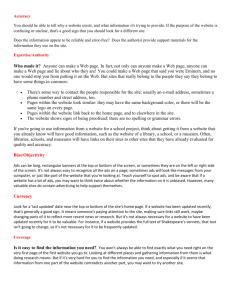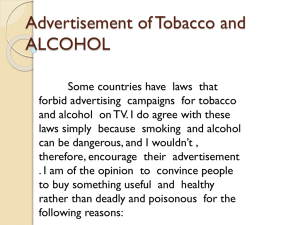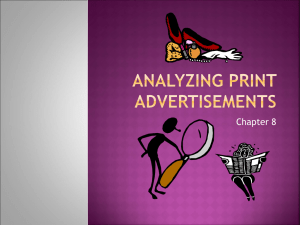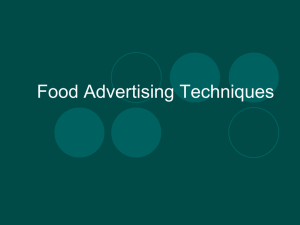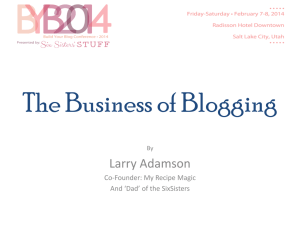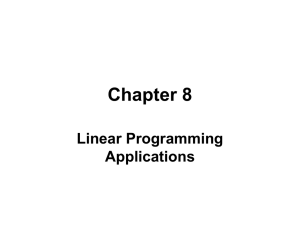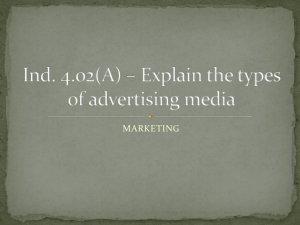OptimizingAdvertisingCampaignEmilyBriggs
advertisement
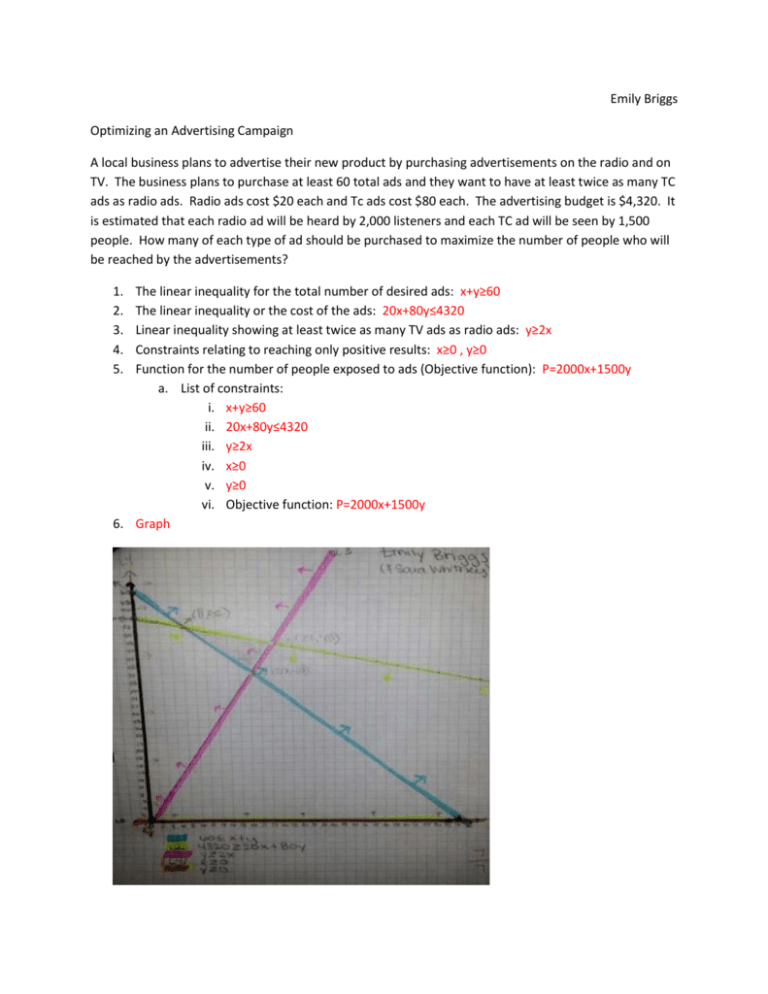
Emily Briggs Optimizing an Advertising Campaign A local business plans to advertise their new product by purchasing advertisements on the radio and on TV. The business plans to purchase at least 60 total ads and they want to have at least twice as many TC ads as radio ads. Radio ads cost $20 each and Tc ads cost $80 each. The advertising budget is $4,320. It is estimated that each radio ad will be heard by 2,000 listeners and each TC ad will be seen by 1,500 people. How many of each type of ad should be purchased to maximize the number of people who will be reached by the advertisements? 1. 2. 3. 4. 5. The linear inequality for the total number of desired ads: x+y≥60 The linear inequality or the cost of the ads: 20x+80y≤4320 Linear inequality showing at least twice as many TV ads as radio ads: y≥2x Constraints relating to reaching only positive results: x≥0 , y≥0 Function for the number of people exposed to ads (Objective function): P=2000x+1500y a. List of constraints: i. x+y≥60 ii. 20x+80y≤4320 iii. y≥2x iv. x≥0 v. y≥0 vi. Objective function: P=2000x+1500y 6. Graph 7. Finding points: a. Lines 1 & 2 = (8,52) b. L2 & L3 = (24,48) c. L3 & L1 = (20,40) 8. Evaluation of objective function using vertices a. P=2000(8)+1500(52)=94,000 b. P=2000(24)+1500(48)=120,000 → Max. c. P=2000(20)+1500(40)=100,000 →Min. 9. Results: 24 radio and 48 TV ads should be purchased to maximize the exposure, which would be 120,000 people (48,000 exposed to radio ads and 72,000 exposed to TV ads). 10. Reflective writing: This gave me an understanding of how/why this math is used. Once you become proficient in the formulas, etc. business would benefit and it would make purchasing various things less of a risk; that is, it reduces or minimizes risk by maximizing profit and consumer exposure. The process was a good learning experience with real-life application.
